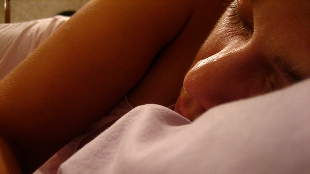 FLICKR, BETSSSSSYPeople with major depressive disorder (MDD) are known to suffer from disrupted sleep and circadian cycles, however the exact mechanism behind this connection had been difficult to pin down. Now, a study published in Proceedings of the National Academy of Sciences on Monday (May 13) has shown that autopsied MDD patients have a disrupted expression of major clock genes compared with control individuals. “It’s as if they were living in a different time zone than the one they died in,” senior author Jun Li of the University of Michigan told The Independent.
FLICKR, BETSSSSSYPeople with major depressive disorder (MDD) are known to suffer from disrupted sleep and circadian cycles, however the exact mechanism behind this connection had been difficult to pin down. Now, a study published in Proceedings of the National Academy of Sciences on Monday (May 13) has shown that autopsied MDD patients have a disrupted expression of major clock genes compared with control individuals. “It’s as if they were living in a different time zone than the one they died in,” senior author Jun Li of the University of Michigan told The Independent.
The researchers analyzed the brains of 55 healthy people and 34 patients with MDD postmortem, using a forensic technique that pinpoints the time of death based on cyclical gene expression in the brain. They noticed that the cyclic pattern of major circadian clock genes, such as BMAL, PER1-2-3 and others, were much weaker in MDD...
“We think the depressed individuals are more likely to be out-of-sync with the regular wake-sleep timing,” Li told The Independent. “Our data also suggests that their daily cycles are not only shifted, but also disrupted. That is, they sleep by the wrong clock, and when they do sleep, the quality [of sleep] could be different from normal sleep.” He added, “if we can understand how depression and poor sleep reinforce each other, we may be able to find better treatment, perhaps by finding better ways to break the cycle.”
Interested in reading more?




